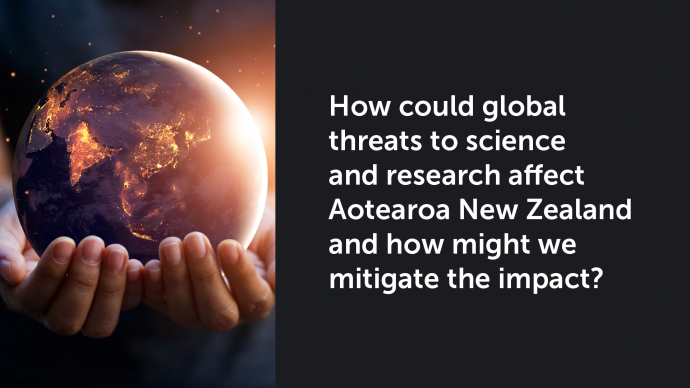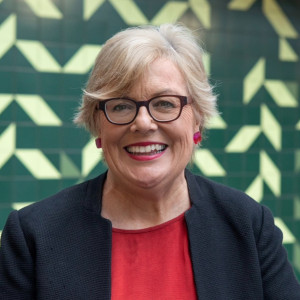Expert perspective: Professor Bronwyn Hayward FRSNZ

Professor Bronwyn Hayward MNZM FRSNZ, a thought-leader in political science and sustainability, urges New Zealand to focus on global research collaboration:
"Today, international and transdisciplinary research cooperation is needed more than ever to address the polycrisis we face. And yet multilateral cooperation is strained to breaking point as nations retreat into isolationism and governments continue to narrow their science funding into tightly framed mission-led briefs.
End-users play an increasingly important role in shaping research agendas and priorities. Yet from an investor and donor perspective, there is also growing unease that despite significant injections of funding into start-ups, research awards and elite teams, the outcomes have had incremental rather than transformational impact.
Prior to COVID-19 we witnessed the global growth of tax incentives to encourage commercial investment in science (and social science) research. Research timelines became shorter and research milestones correspondingly monitored in ways that sometimes subtly discouraged intellectual risk-taking.
It is reasonable to hope that public investment in research will advance the public good, but today’s fractured and competitive research landscape has undermined sustained endeavour. New generations of young researchers only know the ongoing anxiety of soft-money contracts. It’s hard to work passionately and generously on a collective long-term challenge when your own job ends in five months, and you are unsure how you will pay your housing costs or family bills.
Great scientists are made, not born. While the costs of big data and research technology continue to grow, it’s easy to lose sight of the fundamental importance of sustained investment in researchers’ salaries, and in teaching, mentoring, and relationship-building across diverse disciplines. These investments are essential to support the wider research ecosystem that enables creative, disruptive innovation.
From my office I can see the Karl Popper building here at the University of Canterbury. An intellectual refugee to New Zealand, Popper was frustrated here, famously complaining about too much tutoring. And yet in the comparative security of this place he drafted The Open Society and Its Enemies, supported not only by his international peers but by local scholars, students and friends. His presence in-turn invigorated local academic inquiry.
As new generations of scholars-at-risk seek safe havens to think freely, New Zealand has an opportunity to offer that security again.
By investing in the foundations of a holistic education, including sciences, social sciences, humanities and creative arts, we equip new generations of New Zealand researchers to lead innovation. Funding to support international collaboration, rather than picking winners or preventing social scientists for example from applying to particular Horizon Europe projects, helps leverage New Zealand participation in larger networks which in turn enables intellectual innovation and supports a flourishing New Zealand economy and society."
Published May 2025
 Professor Bronwyn Hayward MNZM FRSNZ serves on the Intergovernmental Panel on Climate Change and is the Associate Dean of Research (Arts) at the University of Canterbury. Her research encompasses political science, sustainability, and youth wellbeing. In October 2025 she is co-convening the UN’s ‘Adaptation Futures’ conference in Christchurch.
Professor Bronwyn Hayward MNZM FRSNZ serves on the Intergovernmental Panel on Climate Change and is the Associate Dean of Research (Arts) at the University of Canterbury. Her research encompasses political science, sustainability, and youth wellbeing. In October 2025 she is co-convening the UN’s ‘Adaptation Futures’ conference in Christchurch.

